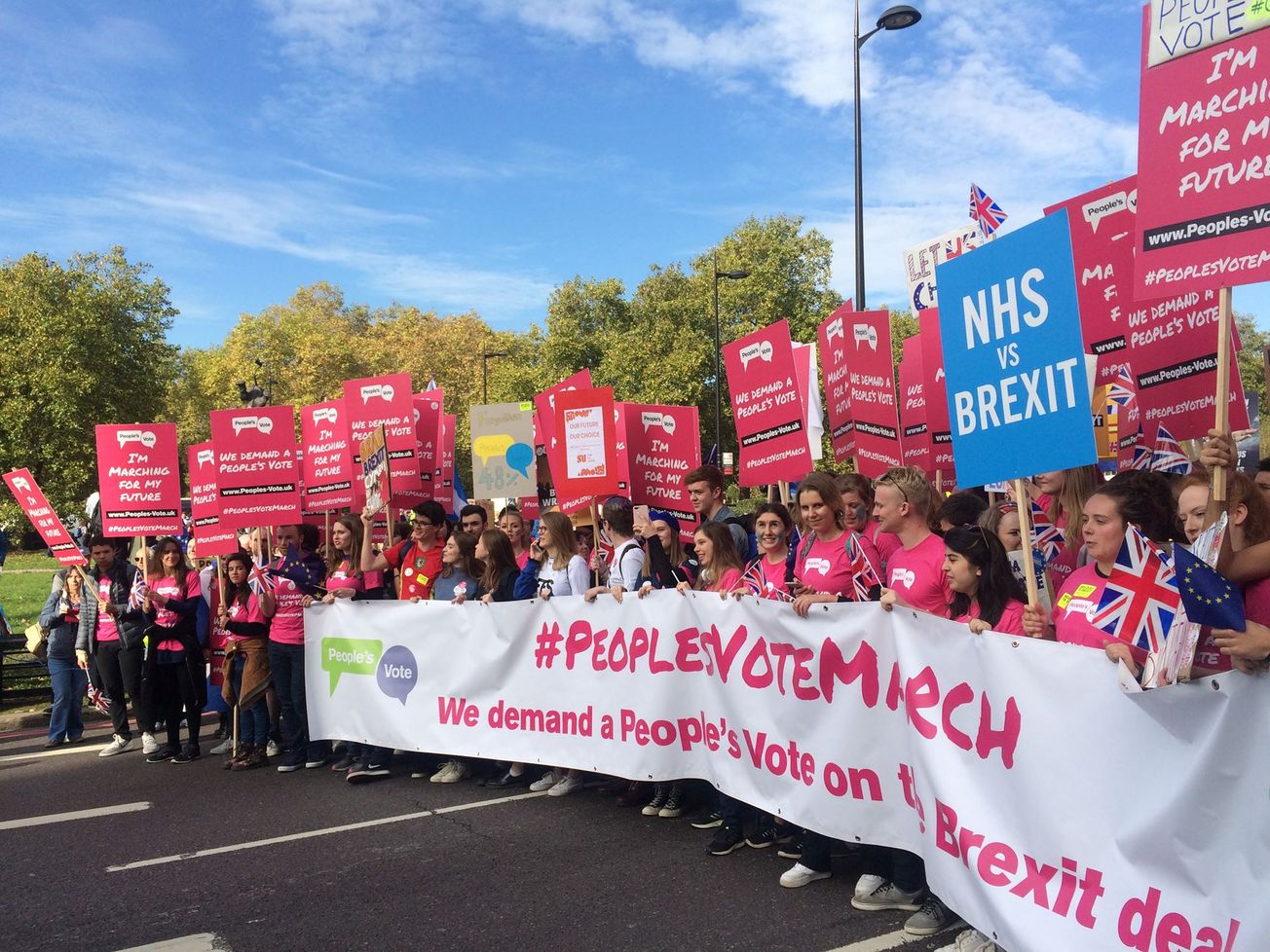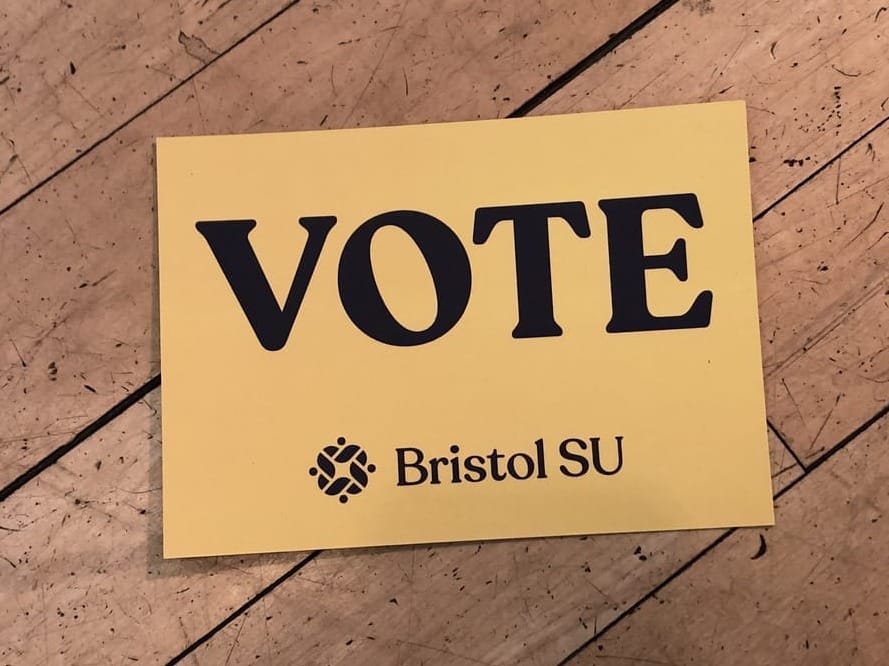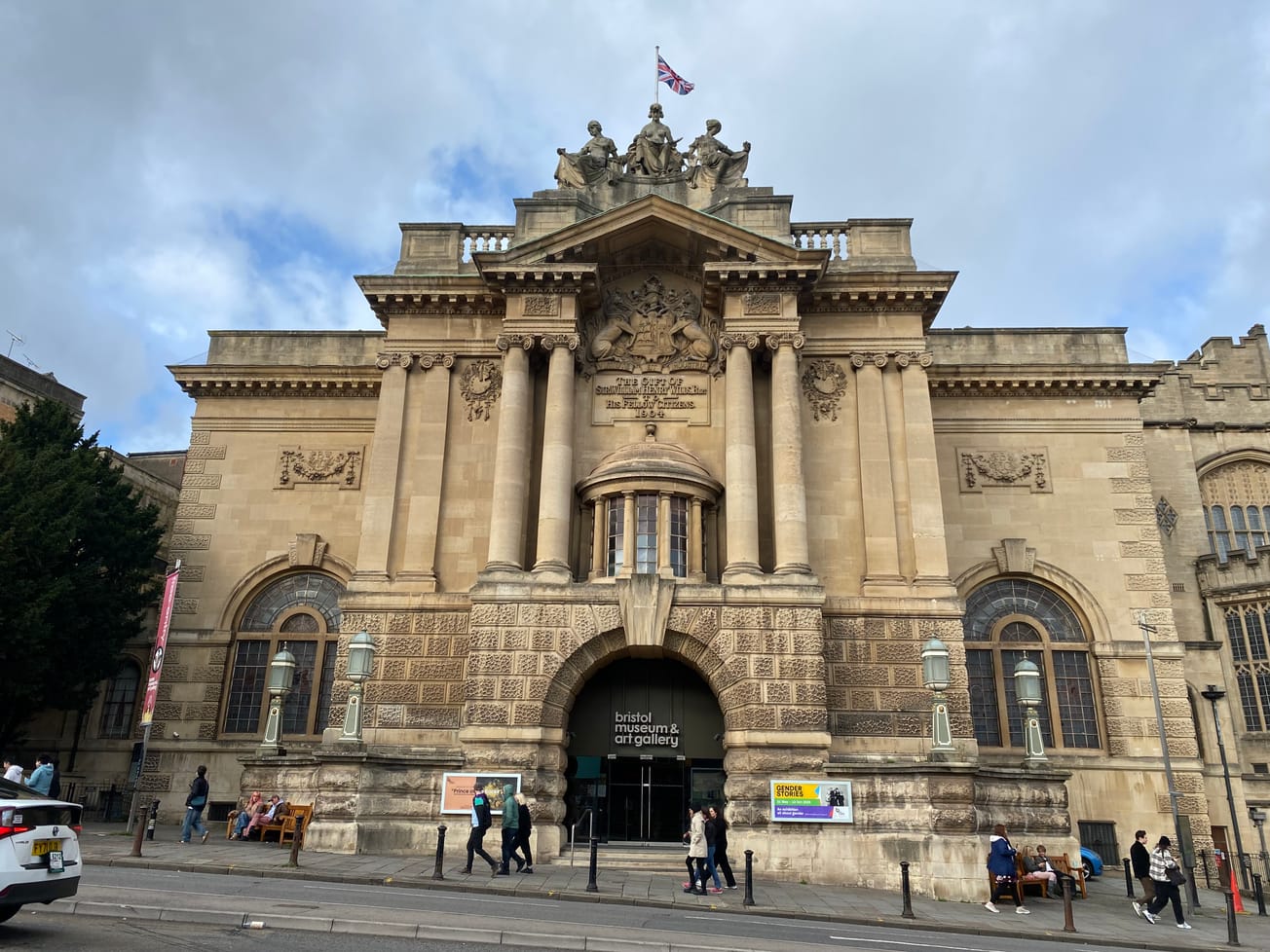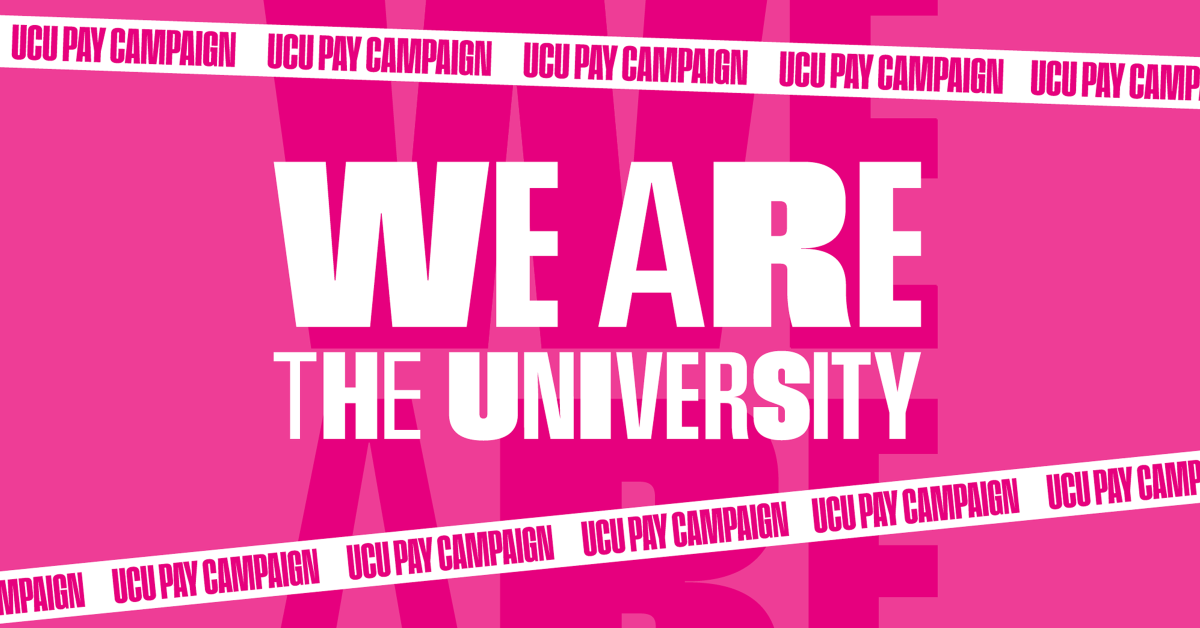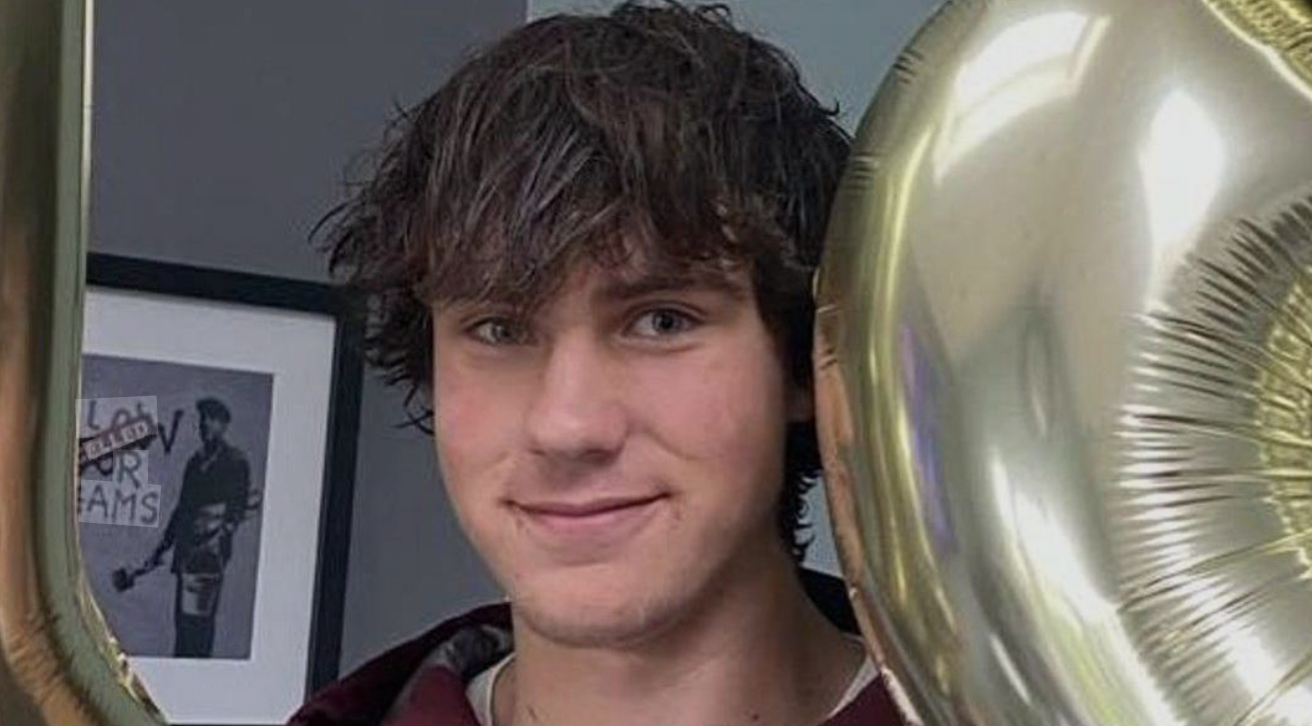Zoë Crowther, Students' Union Correspondent
Joining a crowd of 700,000 people, students marched through central London on Saturday October 20 to protest for a second public referendum on Brexit.
Bristol SU took a coach of students to London for the biggest UK rally since the Stop the War march in 2003. The People's Vote campaign have estimated that at least 700,000 people took part, starting in Hyde Park and finishing in Parliament Square with speeches from Sadiq Khan, Deborah Meaden and other high profile figures.
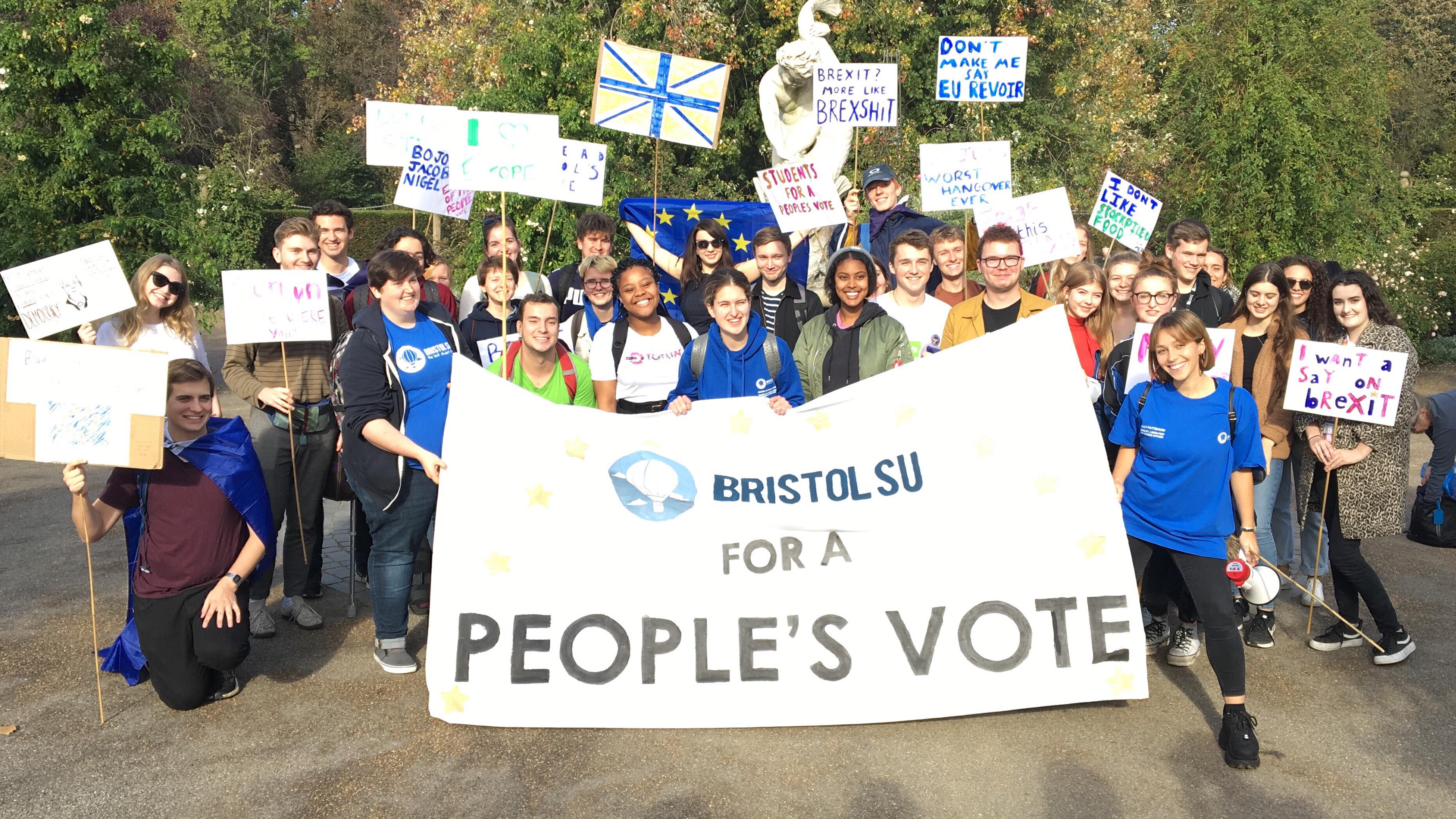
Image: Laura Reid / Epigram
‘Our duty is to represent and protect our students as students, and that’s exactly what demanding a People’s Vote is doing. Moreover, a huge proportion of our students were under the voting age when the vote took place, and it is their futures that are going to be affected. They deserve a say, and we’re going to help them get it.’
Sally Patterson, Equality, Liberation and Access Officer for Bristol SU
With the Bristol cohort led by Patterson, young people and students had a visible presence at the front of the march in order to make their voices heard. Epigram spoke to the Bristol students attending, who identified a broad range of reasons why they feel another referendum is necessary.
These included the importance of the Erasmus scheme for students, job opportunities, lies and misinformation during the original referendum campaign and the precarious position of European students studying in the UK. Mila Kowalcyzk, a first year Maths student at Bristol University, stated: ‘I want to study in Spain in my third year and I don't know what my future will be if I don't have the security of being in the EU.’
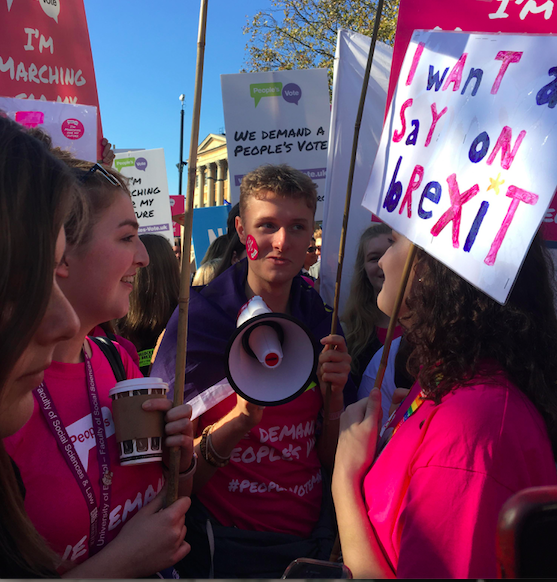
Image: Laura Reid / Epigram
Arianna Robertson and Nicky Tarran, both first year students at Bristol, told Epigram that one of their main reasons for marching was because: ‘we were both under 18 when the vote happened, so its basically a chance for us to let our voices be heard.’ This was echoed by Hillary Gyebi-Ababio, Chair of Bristol's Widening Participation Network, who argued that it’s young people’s ‘democratic right’ to now be included in the Brexit narrative.
Patterson also highlighted that women, BME and disabled students would have ‘nothing to safeguard their rights and protection’ should a hard Brexit take place.
The march was supported by representatives from the majority of UK political parties. Epigram spoke to some of their Bristol University representatives. Max Langer, President of UoB Lib Dems, said:
‘I don’t believe in any vote being undemocratic, because it’s a vote and also this is on the final terms; last time we had so many contending theories as to what Brexit would be and now we can say ‘this is what remain looks like, this is what leave looks like’ so we can have a proper informed choice.’
Tyler Savage, Secretary of the Bristol Uni Conservative Association, said he felt let down by both Leavers and Brexiteers:
‘If people want to change their minds then we should allow them to. Ultimately if our representatives think we should remain in the EU, that’s fine, we shouldn’t go to the people – we have representative democracy in the UK for a reason.’
Co-President of Green Soc, Alex May, suggested that beyond environmental protection, the Green Party considers ‘freedom of movement, grants for University and so many things which affect young people’ to be key elements contributing to their support for the People’s Vote.
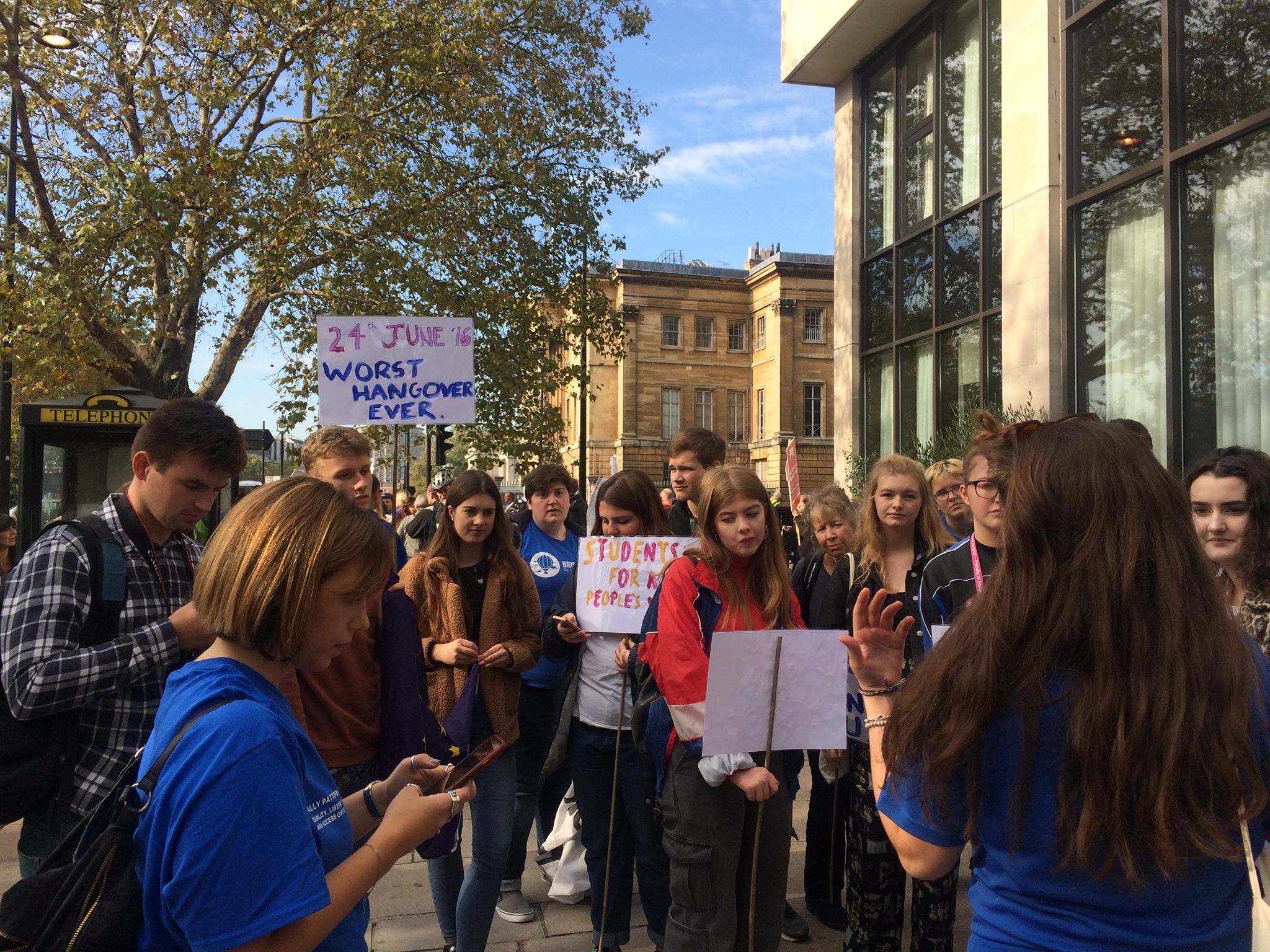
Image: Zoë Crowther / Epigram
For Our Future’s Sake is one of many groups which has been spearheading the growth of student voices behind the anti-Brexit campaign. Leading the front section of the march, young people were made clearly visible in bright pink T-shirts bearing the words ‘I’m marching for my future.’
Epigram spoke to Richard Brooks, the co-founder of For Our Future’s Sake. He described their efforts to ‘work with a hundred Students Unions across universities, colleges and youth-led organisations, to get as many young people - students especially - to the march.’
Tens of thousands of students. A campaign, driven by young people. The fight of our generation, realised.
— For our Future's Sake (@FFSake_) October 20, 2018
We’d like to thank everyone who came and was involved in making #PeoplesVoteMarch for the future such a success.
Next? https://t.co/jO4G5yWUmz#FFS #PeoplesVote pic.twitter.com/8yJnJdBqB8
For Our Future’s Sake emphasises the fact that 70% of 18-24 year olds voted Remain, and argues that this is also reflected in young people’s ‘overwhelming support’ for a People’s Vote. When questioned on whether the group had reached out to young Leave voters, Brooks said: ‘we know that young people aren't a homogenous group. I’m personally from Dover, which is a massive Leave area.'
'We are really clear that we need to make sure that not only are we getting young people activated but that we are changing peoples’ minds as well.’
Richard Brooks, co-founder of For Our Future's Sake
Behind this push for more youth supporters was a £20,000 backing from the National Union of Students. This money contributed to the coaches needed to transport students to the march, with NUS estimating that 36 Students’ Unions took part in this arrangement.
We are still so hyped about the success of the #PeopesVoteMarch yesterday! We want to give a shout out to the youth speakers from every nation . First, Here is Doire Finn, from Northern Ireland speaking about the affects of Brexit on her nation ❤️👏 pic.twitter.com/i9mqnQp7v5
— NUS UK (@nusuk) October 21, 2018
Amatey Doku, the NUS Vice President of Higher Education, said ‘I’m really pleased with the number of people that turned up to the march today.’
‘Obviously there are students who voted Leave, but NUS is a democratic organisation. Every year we decide our policies at our national conference which has student representation right across the country. And we decided decisively at this conference to vote for a People’s Vote.’
Amatey Doku, NUS Vice President of Higher Education
Concern for the future of young people was a prominent feature of the discussions at the protest, with Mayor of London Sadiq Khan stating: ‘Nobody voted to make life harder for our children and grandchildren.’
Bristol SU shall be continuing campaigns: students shall be encouraged to join a steering campaign in order to feed into the SU approach, which will likely consist of lobbying MPs, hosting talks and letter-writing sessions, as well as connecting students with wider Bristol initiatives such as Bristol for Europe and For Our Future’s Sake.
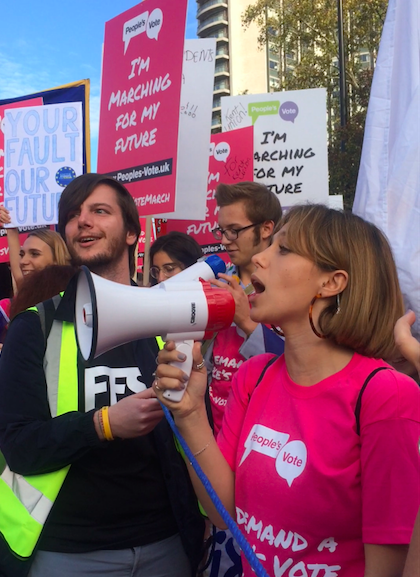
Image: Zoë Crowther / Epigram
In regard to the University’s position, Sally Patterson expressed her hope that the University shall want to collaborate with the SU on educational issues surrounding Brexit, stating that ‘they are clearly preparing for the worst, but are in just as an uncertain position as the rest of us.’
Featured Image: Zoë Crowther / Epigram
Let us know:

